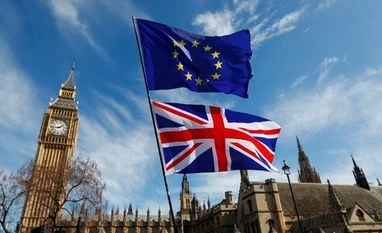Britain's FTSE 100 fell 0.3 per cent to 7,413.33 points, weighed down by weakness in mining and oil stocks, as well as in shares of large-cap dollar earners.
Friday marked the one-year anniversary of Britons voting in a referendum to quit the EU, a shock outcome which sent sterling, British and European stocks into a tailspin.
While stocks have recovered sharply from their slump in the immediate aftermath, in U.S. dollar terms, British stocks continue to lag peers in Europe and elsewhere as a cloudy outlook for sterling dented appetite among foreign investors.
"Brexit itself, I don't think, has had much of an effect on the market, but what has had an effect has been the fall in sterling," Paul Mumford, senior investment manager at Cavendish Asset Management, said.
"Because of the uncertainty that might have arisen from the election result, it may be that sterling is going to stay down longer than we thought," added Cavendish's Mumford, referring to the recent British general election which resulted in a hung parliament.
The pan-European STOXX 600 index was down 0.1 per cent as a bruised oil price weighed on Europe's broader energy sector, which fell 0.3 per cent.
Elsewhere, broker changes helped drive price action, with German lender Commerzbank rising 1.5 per cent on a negative banking index after an upgrade from Citi.
More From This Section
Citi raised its rating on Commerzbank to a "buy", saying that it expects the bank's profitability to recover.
Shares in pizza delivery firm Domino's Pizza were among the biggest fallers, down 3.6 per cent near a two-year low after a downgrade from Berenberg.
Berenberg analysts said that Domino's faced potential issues ahead, including falling behind in terms of technology as well as food inflation putting pressure on franchisee margins.
Danish pharma firm Lundbeck was the biggest STOXX faller, dropping more than 4 per cent after receiving a second complete response letter from the FDA about its antidepressant Trintellix.
Finnish and Swedish markets were closed for a holiday.
)